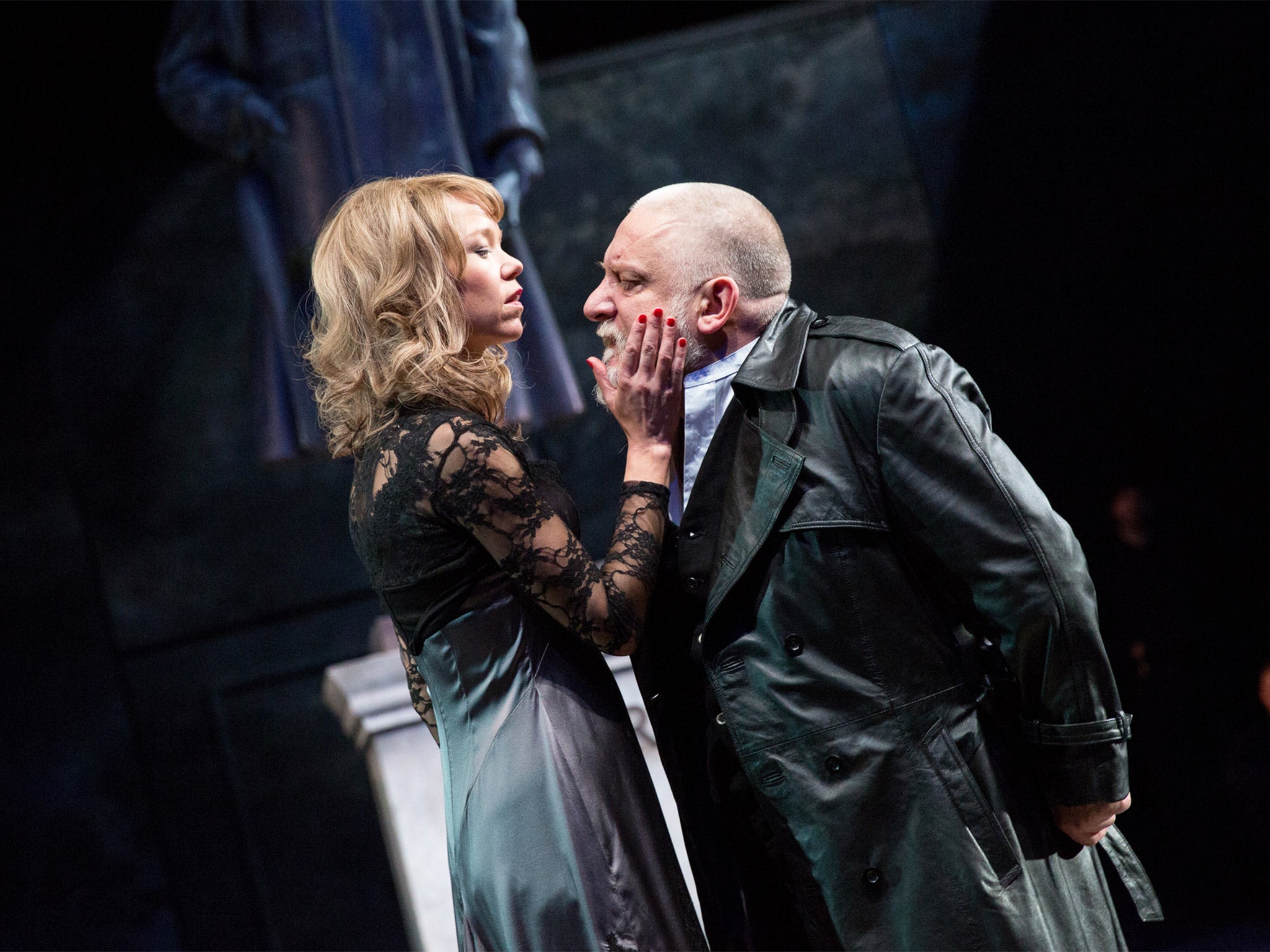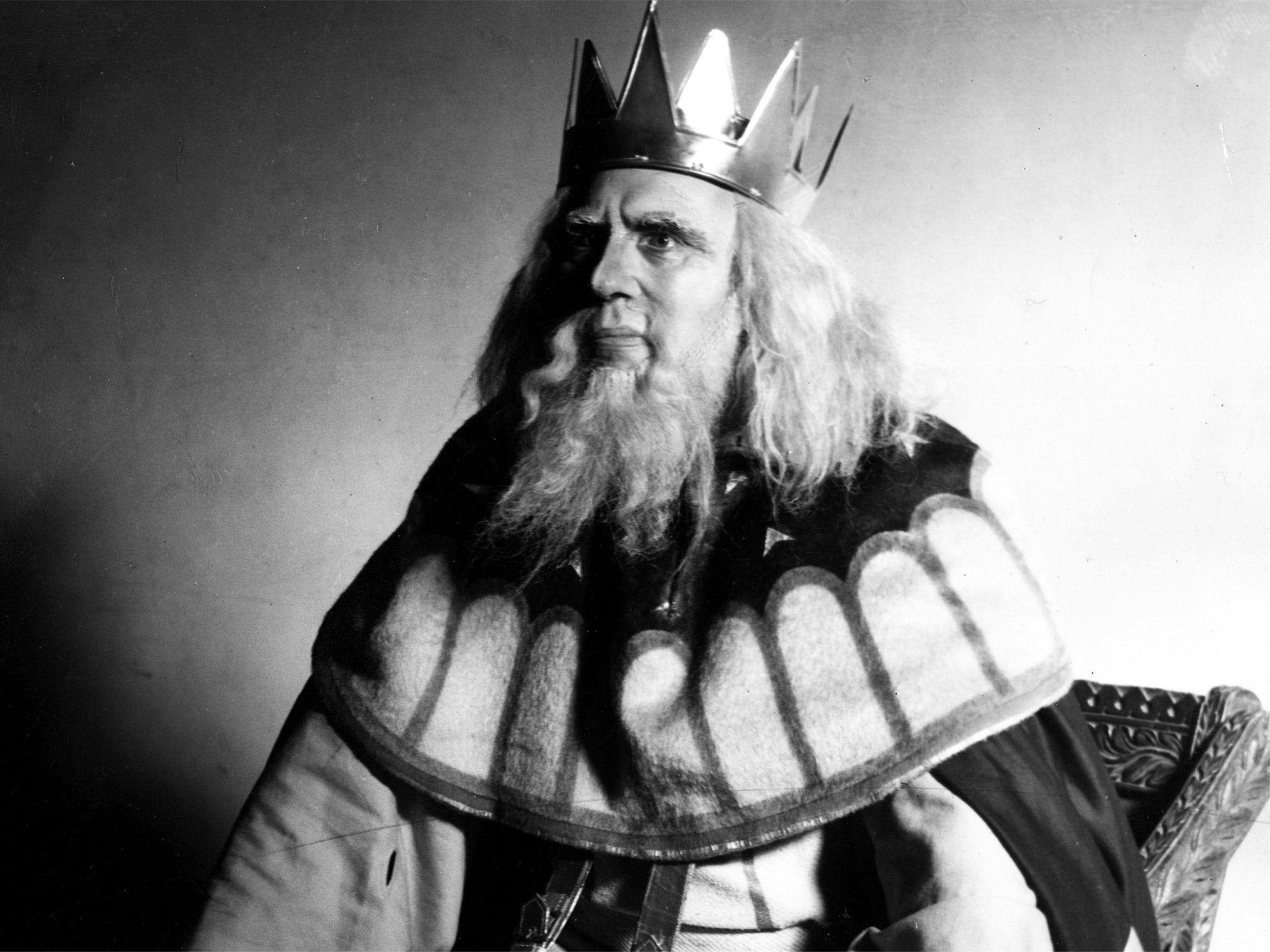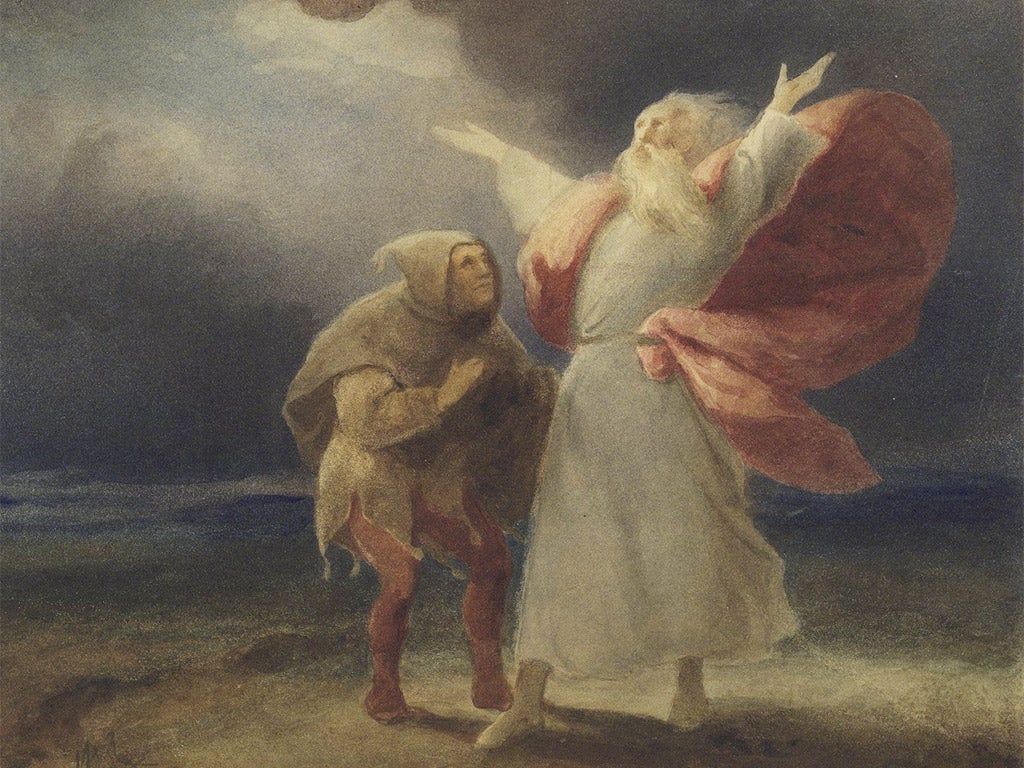King Lear: Discovering a tragedy of dissolving self, unbearable but unforgettable
Continuing our series of personal celebrations of William Shakespeare, Arifa Akbar considers the most heart-rending of all his tragedies

I was once at a dinner with about 30 other journalists from this paper when the then editor asked us to name the Shakespeare play we most related to, each in turn. I was sitting at the far end of the table and I was surprised that no one had said King Lear by the time they got to me.
The reason I gave was personal – it was a play that dealt with the anxieties of being a dutiful daughter to a difficult father. It hadn’t been long since my father had been diagnosed with frontal-lobe dementia, and I was in shock at how to care for him but also how to relate to this new, “ill” father, the one stripped of physical strength, social standing and his former mental capacities. Added to which were violent outbursts, confused thinking and the rush of tears that I had never seen before.
I can’t help but see Lear’s “madness” as a man suffering from dementia. In his condition, I see Shakespeare making pointed references to the classic signs of the illness, from his sudden outbursts of violence towards Regan’s courtiers, to his fundamental confusions (“who is it that can tell me who I am?”), his mood swings (“this tempest in my mind”), and his sudden ill-judgement that leads to the turfing out of Cordelia, the only daughter who returns his pride with unconditional love.
I see Lear in sad-faced men, shuffling along the street or getting on buses. Men who must have been robust once, and sure of themselves. I see him in Ron Mueck’s sculpture Dead Dad, in its small, shrunken tenderness. Fathers are never supposed to be that vulnerable. Just as Patrick Kavanagh says in his poem that “Every old man reminds me of my father”, every old man reminds me of Lear, and Lear reminds me of fathers.
I feel such sadness for this “discarded father”, once so full of pomp and power who is brought down by those universal levellers – ageing, infirmity, the ambivalent love of children (or two of them) and finally, death.
I want to sneer at him for his hubris in turning out Cordelia because she won’t flatter him, but I always feel the immensity of his pain when he stumbles across the heath, battered by the elements and stripped of all he has been – powerful ruler, controlling father, arrogant man – the certainties on which his identity hinges all but leaked away with the storm. Yet it is only when he has lost everything that he gains clear sight; trauma, illness, loss, carries its own enlightenment.

However many times I revisit the play, the “heath scene”, stops me in my tracks. The blinkers that Lear wears to make sense of the world are removed, and he is forced to stare into Nietzsche’s nihilistic “abyss”. Once Lear loses his standing in his kingdom and within his family, he and his philosopher-fool are consumed by the “nothingness” that lies beneath his worldly identity: “Now thou art an 0 without a figure”, the fool says of Lear after he has divvied his kingdom up to his daughters, “…thou art nothing.”
To interrogate the nature of our true “self” (or the absence of it) was a radical – even heretical – move by Shakespeare at a time when it was a given that a Christian soul sat within each of us, and the play is utterly modern – maybe even postmodern – in its obsession with concepts of being and nothingness.
William Hazlitt thought King Lear so great an achievement that he felt even to begin to describe it would be impertinence. Charles Lamb, too, wrote of his disdain for anyone who dared to stage it. This play was un-stageable anywhere but in the theatre of the mind, he wrote.
I see Hazlitt and Lamb’s words as pompous. Shakespeare surely meant it to be staged. And yet, uncannily, I can’t remember having seen a single performance of it – I know I must have – but I feel a blanket of amnesia has been thrown over it.
Maybe I have forgotten watching it because I can’t bear the idea of doing so, in a theatre, as a piece of entertainment. It seems beyond that, somehow. And so, the play is one that lives in my mind, the most unforgettable, and tragic, of all of Shakespeare’s plays that reminds us of all that we are, and aren’t.

Shakespeare at a glance: King Lear
Plot
King Lear, growing tired of his power, has decided to divide his kingdom between his three daughters. The largest portion will go to the daughter who loves him most. Goneril and Regan are rewarded for their flattery; Cordelia, who speaks honestly but bluntly, is disinherited. Lear then discovers the hollowness of Goneril and Regan’s compliments. He rages; they tire of him and conspire to murder him; he flees. Losing his mind, he wanders and rages on a storm-swept heath. Cordelia, who has married the King of France, comes to his rescue with an invading army, but loses the battle. Regan is poisoned by Goneril, who then commits suicide. Cordelia is hanged. Lear, overcome with grief, dies with her.
Themes
Identity; madness; true and false feelings; the unbearable cruelty of fate.
Background
Written around 1603; Richard Burbage, the leading tragedian in Shakespeare’s company, played Lear in the only recorded production of Shakespeare’s lifetime, in 1606. The role has been seen as one of the ultimate challenges of the stage ever since. Notable recent portrayals include Jonathan Pryce (2012) and Simon Russell Beale (2014). Kathryn Hunter famously played the part in a 1997 adaptation.
Characters
* King Lear: tired, proud, deluded king.
* Cordelia: loyal, softly spoken daughter.
* The Fool: jester who speaks truth to power.

Top lines
* “I love your majesty according to my bond; no more nor less.” Cordelia is a little too honest with her father, Act 1 Scene 1
* “I will do such things – what they are, yet I know not; but they shall be the terrors of the earth.” Lear vows revenge, Act 2 Scene 4
* “Blow winds and crack your cheeks!” Lear defies the storm, Act 3, Scene 2
* “The worst is not, so long as we can say, This is the worst.” Edgar on misery, Act 4, Scene 1
* “As flies to wanton boys are we to th’ gods, they kill us for their sport.” Gloucester on misery, Act 4, Scene 1
* “Thou art a soul in bliss; but I am bound upon a wheel of fire.” Lear awakens to see Cordelia, Act 4, Scene 7
* “Men must endure their going hence, even as their coming hither.” Edgar on death, Act 5, Scene 2
* “Howl, howl, howl, howl! O! you are men of stones.” Lear finds Cordelia dead, Act 5 Scene 5
Echoes
Akira Kurosawa’s 1985 film Ran was partly inspired by it. Leo Tolstoy’s 1906 “Critical Essay on Shakespeare” was scathing about it.
Luke Barber
Join our commenting forum
Join thought-provoking conversations, follow other Independent readers and see their replies
Comments
Bookmark popover
Removed from bookmarks